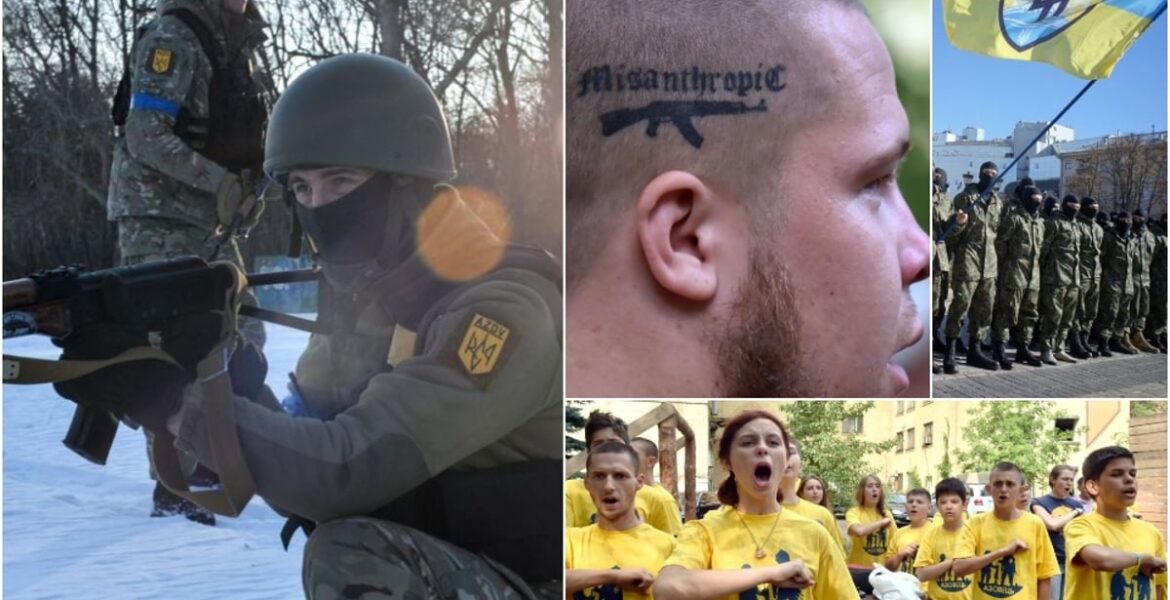The Azov Battalion, with neo-Nazi roots, is being resurrected in Ukraine after it was destroyed in combat with the Russian Army and its surviving members captured in the Greek-founded city of Mariupol in May 2022.
At least two battalions have already been formed and a third is being recruited, reported Nezavisimoye Voyennoye Obozreniye.
The regiment includes fighters who participated in the battle for the Azovstal plant in Mariupol and recruitment is carried out officially with announcements through central Ukrainian media channels and platforms.
"We are waiting for motivated volunteers who want to defend Ukraine in the ranks of a professional unit," an Azov Battalion representative was quoted as saying by the newspaper, noting that the reactivation of the battalion occurred at the official level.
The Armed Forces of Ukraine currently have units, called Azov, made up of volunteers and belonging to the corps of the so-called Territorial Defence, but they have nothing to do with the original regiment
The Azov Battalion was based in the city of Mariupol and dug in at the Azovstal plant as a final stand. During the fierce fighting, the Russian troops managed to destroy the battalion and take the surviving fighters as prisoners.
Who are the Azov Battalion?
Azov Special Operations Detachment (Ukrainian: Окремий загін спеціального призначення «Азов»), or Azov Battalion, is a right-wing extremist and neo-Nazi unit of the National Guard of Ukraine, based in the Greek-founded city of Mariupol in the Azov Sea coastal region.
In 2014, the regiment gained notoriety after allegations emerged of torture and war crimes, as well as neo-Nazi sympathies and usage of associated symbols by the regiment itself, as seen in their logo featuring the Wolfsangel, one of the original symbols used by the 2nd SS Panzer Division Das Reich.
Representatives of the Battalion say that the symbol is an abbreviation for the slogan Ідея Нації (Ukrainian for “National Idea”) and deny connection with Nazism.
In 2014, a spokesman for the regiment said around 10–20% of the unit were neo-Nazis.
In 2018, a provision in an appropriations bill passed by the U.S. Congress blocked military aid to neo-Nazi group on the grounds of its white supremacist ideology; in 2015, a similar ban on aid to the group was overturned by the Congress.
Members of the regiment come from 22 countries and are of various backgrounds.
The unit’s first commander was far-right nationalist Andriy Biletsky, who led the neo-Nazi Social-National Assembly and Patriot of Ukraine.
In its early days, Azov was a special police company of the Ministry of Internal Affairs, led by Volodymyr Shpara, the leader of the Vasylkiv, Kyiv, branch of Patriot of Ukraine and Right Sector.
In 2018, the U.S. House of Representatives also passed a provision blocking any training of Azov members by American forces, citing its neo-Nazi connections.
The House had previously passed amendments banning support of Battalion between 2014 and 2017, but due to pressure from The Pentagon, the amendments were quietly lifted.
This was protested by the Simon Wiesenthal Center which stated that lifting the ban highlighted the danger of Holocaust distortion in Ukraine.
READ MORE: Greece responds to Turkey's latest threat of war: "We are neither intimidated, nor terrorised".


